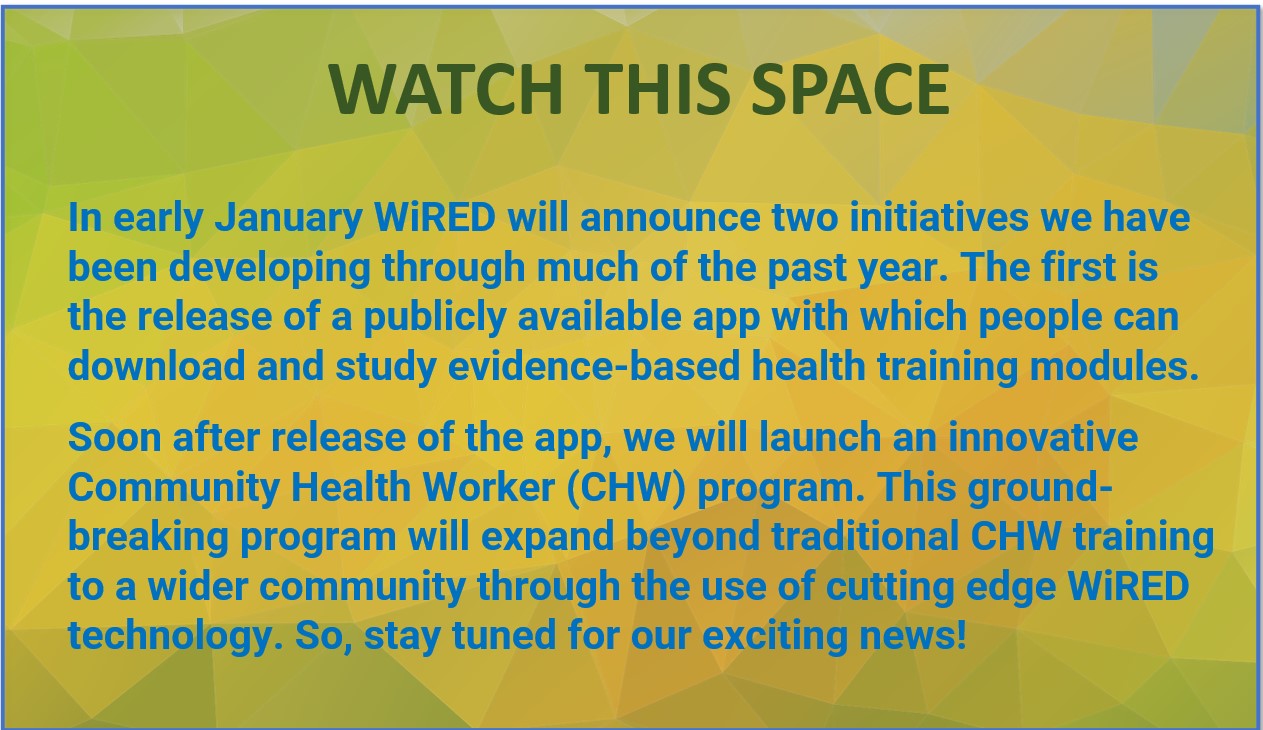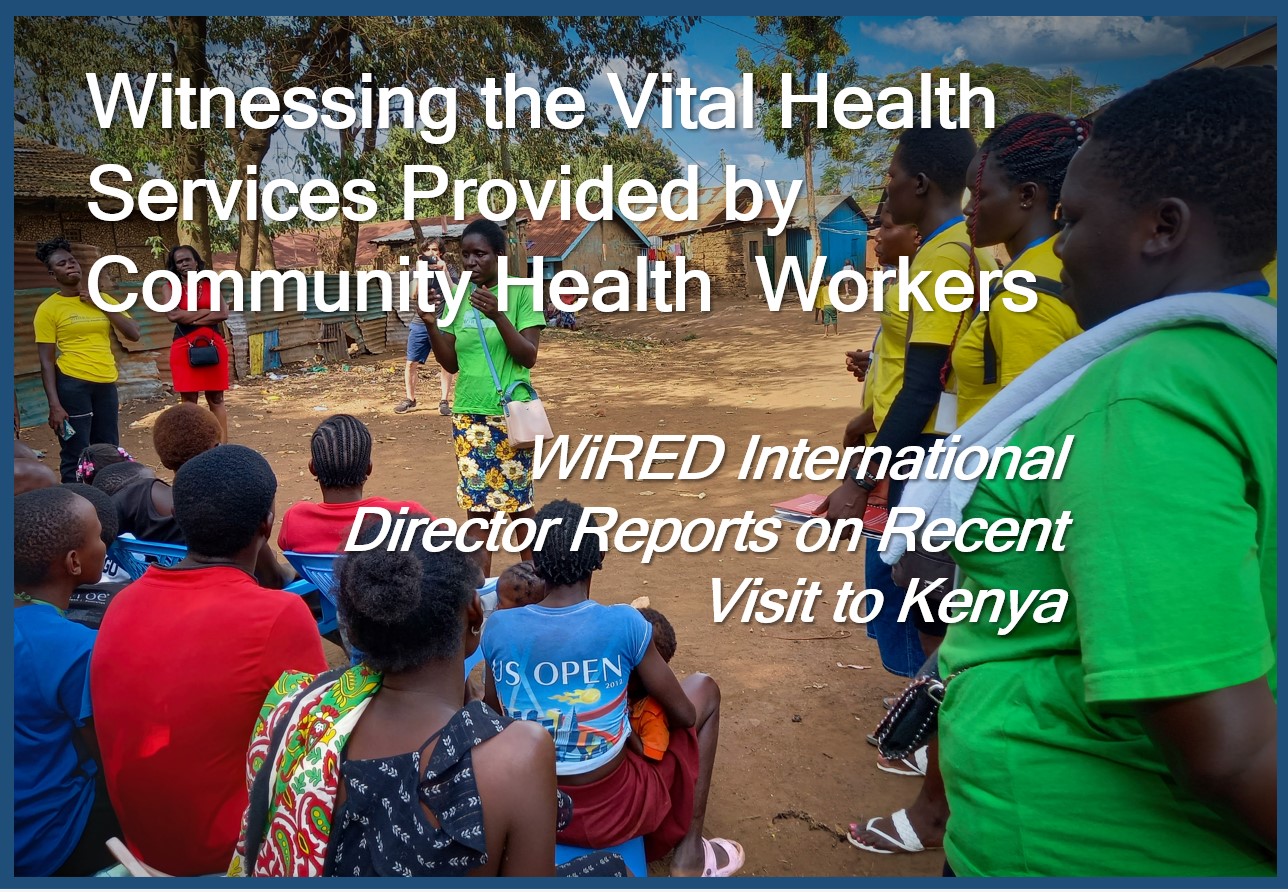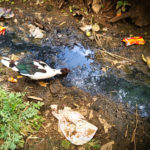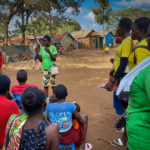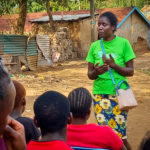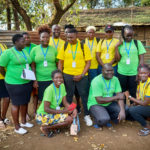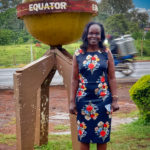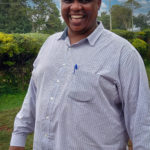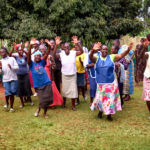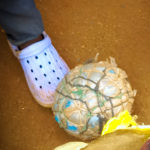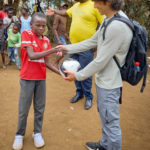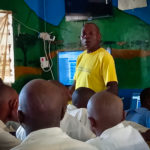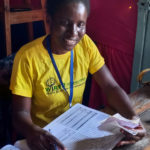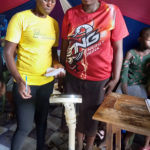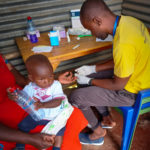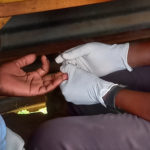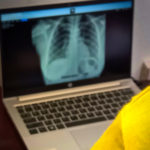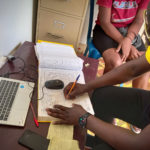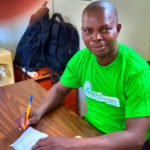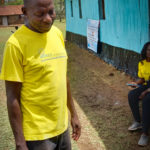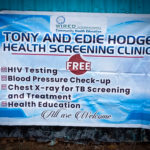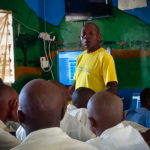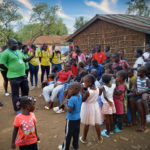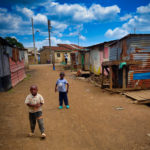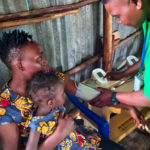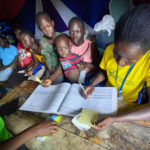This past November WiRED International’s Executive Director Gary Selnow, Ph.D., traveled to Kenya to observe our community health workers (CHWs) in action as they provide clinical services and training to thousands of people in the low-resource region of Kisumu. They work individually and in teams to prevent and treat disease and promote healthy practices, and they refer community members for higher-level care as needed. The following is Dr. Selnow’s firsthand account — with plenty of photos to highlight the remarkable success of the CHW team’s work.
By Gary Selnow; Edited by Elizabeth Fine
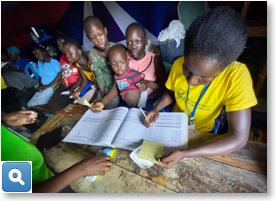 These remarkable CHWs never cease to amaze me. Many of them have been providing critical clinical services and training programs in their communities since the COVID-19 outbreak, continuing to elevate the health of entire populations in informal settlements in Western Kenya.
These remarkable CHWs never cease to amaze me. Many of them have been providing critical clinical services and training programs in their communities since the COVID-19 outbreak, continuing to elevate the health of entire populations in informal settlements in Western Kenya.
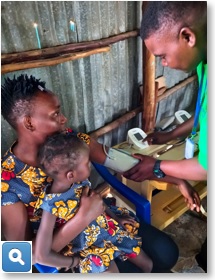 During a week-long visit, Dr. Sean Bristol-Lee, a physical therapist and computer programmer, joined me on the trip. He and I observed 20 health workers operating a comprehensive health screening clinic. They took vital signs of each community member and directed those with concerning readings to an on-station clinician. They screened for HIV/AIDS, tuberculosis and blood sugar levels, referring individuals for higher-level evaluations when necessary.
During a week-long visit, Dr. Sean Bristol-Lee, a physical therapist and computer programmer, joined me on the trip. He and I observed 20 health workers operating a comprehensive health screening clinic. They took vital signs of each community member and directed those with concerning readings to an on-station clinician. They screened for HIV/AIDS, tuberculosis and blood sugar levels, referring individuals for higher-level evaluations when necessary.
During our visit, these CHWs taught disease prevention to large groups, collaborated with an environmental organization on health matters related to recycling and water purification, educated classrooms of students about good health practices and trained at-risk youth on proper dental hygiene.
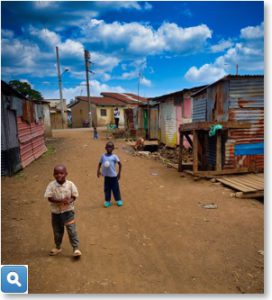 During this visit, we met with leaders from a local medical and nursing school and initiated discussions with people working with local ministries of health. We also observed the launch of a new training class designed to prepare a fresh group of CHWs and equip others with fundamental public health skills. The class included high school teachers, medical students, ministry of health workers and others who will apply their new skills across various settings, including schools and workplaces in low-resource communities.
During this visit, we met with leaders from a local medical and nursing school and initiated discussions with people working with local ministries of health. We also observed the launch of a new training class designed to prepare a fresh group of CHWs and equip others with fundamental public health skills. The class included high school teachers, medical students, ministry of health workers and others who will apply their new skills across various settings, including schools and workplaces in low-resource communities.
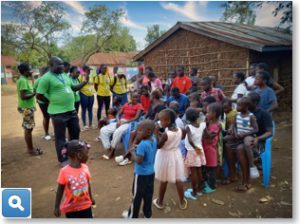 Having visited Kisumu for many years, I believe this year provided the strongest confirmation yet of the immense value that trained CHWs bring to populations where healthcare is scarce. WiRED’s five-week basic training course prepares them to address key health needs in their communities, while WiRED’s continuing medical education program empowers them to learn new skills and enhance their contributions.
Having visited Kisumu for many years, I believe this year provided the strongest confirmation yet of the immense value that trained CHWs bring to populations where healthcare is scarce. WiRED’s five-week basic training course prepares them to address key health needs in their communities, while WiRED’s continuing medical education program empowers them to learn new skills and enhance their contributions.
I have profound respect for these CHWs, their leadership and the clinicians who train them using WiRED’s comprehensive curriculum. The WiRED CHW program powerfully demonstrates the transformative potential of rigorous training in preparing health paraprofessionals to serve communities often overlooked by traditional healthcare systems.”
Photo Show
(click to enlarge images)
